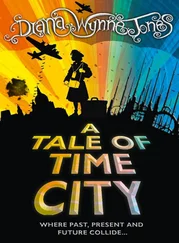“Mr. Carlson, it’s obvious you cannot structure a defense for a man who does not want to be defended,” the judge assigned to the case of the District of Columbia vs. Samuel Lamont Williams said at one point to the attorney assigned to defend Samuel. That was but one of the sentences in the transcript of the trial that Madeleine Williams would come to memorize.
When Maddie arrived at the apartment that morning, she found her brother sitting in near-darkness on the floor near the couch, the telephone resting like a black pet on his lap. Still not quite fully awake, Maddie had traveled the three blocks to the M Street apartment only partially aware of what she was doing. Samuel was dressed only in his underwear; there was no sign of trouble about him that she could see, and for a bit this gave her comfort, and this was what she told the courtroom one sweltering day in July.
But in his bedroom she found her sister-in-law, dead, head down, sitting on the floor with one leg under her in a giant pool of drying blood. In her left hand, the greatest friend of Maddie’s life gripped a hairbrush, and her right hand was open, also resting on the floor, palm up, as if expecting a small surprise to be dropped into it. It seemed to Maddie right then that all the innocence and joy and kindness had seeped out of Agnes Marie Williams and had become the pool of blood about her. The floor tilted, and so the blood had flowed through the night in several thin lines from the dead woman, and one line had been heading directly toward where Maddie was standing in the doorway. The front of Agnes’s nightgown was soaked through with blood. “He said to me on the phone, ‘I stabbed her a lot.’” These words her niece, Madeleine, would find on page twenty-eight of her $75.86 copy of the trial transcript. The day she bought it — some twenty years after that morning — Madeleine made it all the way home before she discovered that her copy was missing pages forty-five through fifty-two. It would be three weeks before the court clerk could produce the missing pages, and on those pages there were no sentences that Madeleine would come to memorize.
In the next room, Maddie found the children, still asleep, and it was only then that she began to cry. She backed out of the room, went to her brother, and stood over him. “Say somethin to me,” she hissed. She waited, and then she kicked him as hard as she could in his side, and the force of the kick sent the telephone sliding off his lap. It was the last time in their lives she would ever touch him. Samuel raised his fist to her and kept it raised until she backed off.
“Say somethin, gotdamnit! Say somethin, you sonofabitch!” She was reliving a spot or two in the last year, the times when Agnes had said it would be all right and Maddie said No and Agnes said Yes it would and then Maddie said Yes because she wanted to believe too.
Maddie called the police. She went back to close the door of the adults’ bedroom and went to the children’s room. It took her a few minutes to wake the children and help them dress. As usual, Pookie, as Sam Williams was then called, acted as if he were older than his ten years and dressed without much fuss. But Madeleine was a problem. She complained that she was hungry, and her aunt told her she would get all the food she wanted at her place. Then Madeleine could not find her doll, and it took the three of them several minutes of hunting about the room to find it. Finally, before their aunt opened the door, Pookie said he had to pee. Maddie told him to hold it and Pookie quietly told her that maybe he couldn’t, that he might pee on himself. “I told him we were in a hurry,” Maddie would tell Madeleine years later, “and that if he did pee on hisself, it wouldn’t be the worse thing in the world for a boy to do.”
Madeleine, as she was used to doing, tweaked her father’s nose as Maddie was ushering the children to the front door. This was how her years of nightmares would begin, the nightmares that would keep her sleeping in Maddie’s bed until she was eleven.
Outside, Maddie found two white policemen getting out of their patrol car. “Go up to the second floor,” she said with authority. “The door’s open. I’ll be back soon as I can.” One, the older, the larger, did not look up when she spoke and seemed preoccupied with fixing something on his hat. The other kept blinking as if he too had come directly from his bed; Maddie, pestered by Madeleine years later, would remember that the new day’s sun flowed in on the street and bits of the sun were caught on the blinking man’s badge, his brass buttons, the plastic over the brim of his hat.
“Come,” she said to the children, and she took Madeleine’s hand.
“Aunt Maddie, we ain’t even washed our faces,” Madeleine said, holding her doll by the back of the neck. “We ain’t even brushed our teef yet.” “It’s okay,” Pookie said, patting his sister’s head. The woman and the children headed down M Street toward 5th, and so the sun was at their backs.
Judge John Tellingford chose to sentence Samuel Williams to twenty-five years at Lorton and, Madeleine found on page 164 of the transcript, the judge noted that for whatever demented reason the father had stabbed to death the mother of his children, he had seen fit to spare his children an equally horrendous fate. “You are lucky, Larry, your wife wasn’t white,” he said. “Or the full force of the people would have come down on that head of yours.” In A Pictorial History of the Judicial System in the District of Columbia , Madeleine would find a picture of Judge Tellingford. He had had a huge forehead many inches high and he had been a very small white man (“a towering figure on the bench,” a Washington Post obituary would say), much smaller than any of the other judges in the book, and Madeleine could tell this even though Judge Tellingford had been photographed, like the others, in his judicial robe.
Of the newspapers, only the tabloid-sized Washington Daily News reported what had happened. In a drafty room at the Library of Congress, with the light on her microfilm-reading machine flickering the whole time, a pregnant Madeleine would find the headline, at the bottom of page thirteen, accompanied by about an inch and a half of print: NEGRO CHEF KILLS WIFE.
Madeleine and Pookie never saw the apartment again, and until she was about six, when Pookie told her to stop saying it or he would knock her in the mouth, she would pass the apartment building at 427 M Street, Northwest, and tell whomever she was with that up there on the second floor was where her daddy had stabbed her mama to death.
By default, Maddie Williams became their guardian. Maddie, who had lived with few cares, with neither child nor chick, as she told the world, had long before made peace with herself about never marrying, about never wanting a family. And so for weeks and weeks after the murder she beseeched Agnes’s family to take Madeleine and Pookie. The idea of being responsible for them for years and years terrified her. But each time she called on the telephone or knocked on their door at the fine house on New Jersey Avenue, someone in Agnes’s family would remind her that they had never wanted their daughter, their sister, their Aggie, to marry that man. “We knew he wasn’t any good,” they would say, and Maddie would go away knowing that what they really meant was that her brother had always been too dark for them.
She herself was a very dark-skinned woman with long hair she usually wore in a bun propped in all its abundance with hairpins on the back of her head, like a picture hanging on a wall. She loved men, men who would have killed for her, and it frightened her that she would have to give up all the colored men in the world for two children. Sometimes, for years after she took the children into her life, as she lay on that freed hair in the arms of some man after they both had come and come again and the man was no longer drowning her with such foolishness about baby this and baby that, she would find herself beginning to fall asleep. Then, ever so slowly, her eyes would begin to open as she tried to remember if she had left the children with someone. And if she hadn’t, the man, in the dark, would reach across the bed to her as Maddie dressed.
Читать дальше












